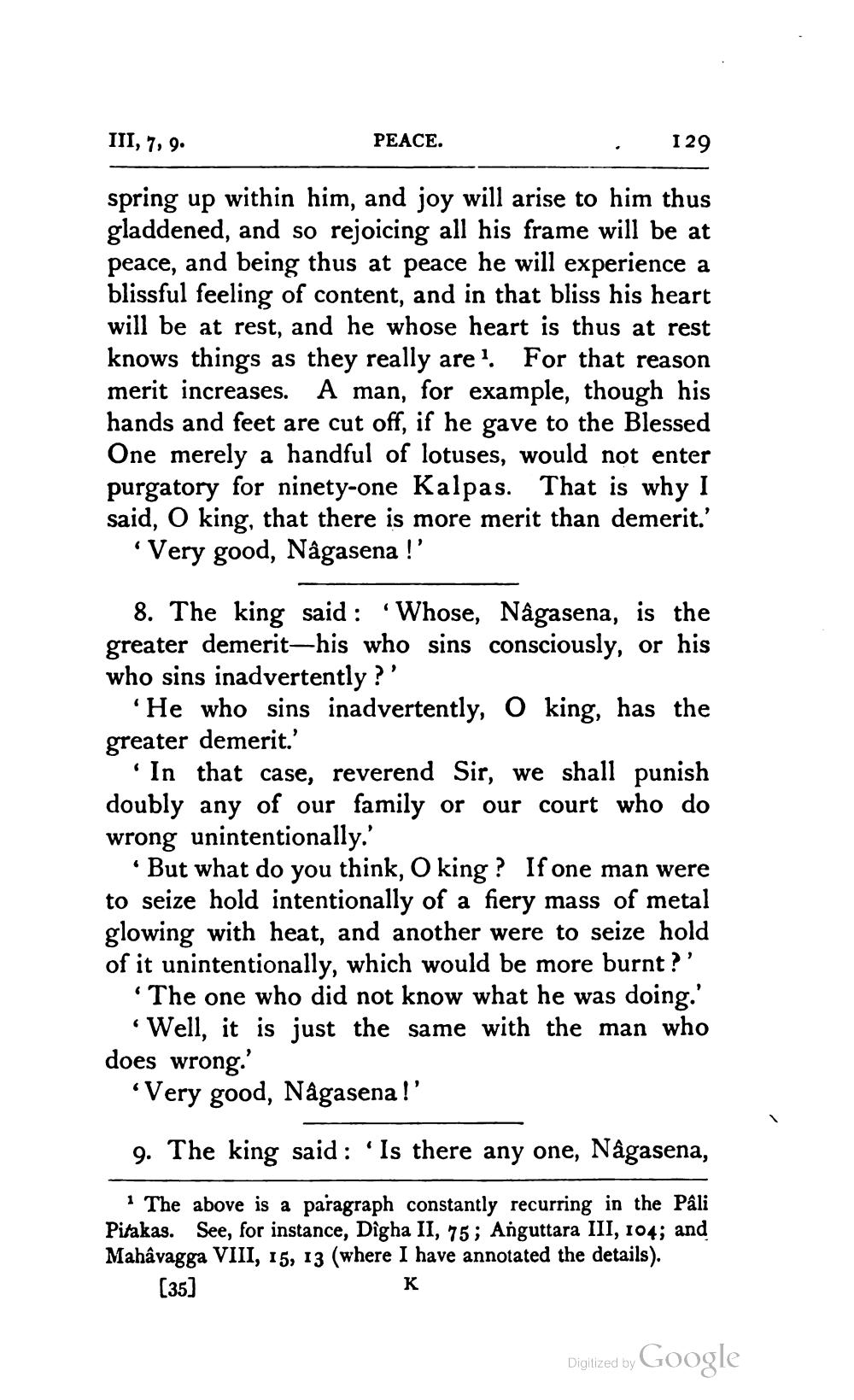________________
III, 7, 9.
PEACE.
·
129
spring up within him, and joy will arise to him thus gladdened, and so rejoicing all his frame will be at peace, and being thus at peace he will experience a blissful feeling of content, and in that bliss his heart will be at rest, and he whose heart is thus at rest knows things as they really are. For that reason merit increases. A man, for example, though his hands and feet are cut off, if he gave to the Blessed One merely a handful of lotuses, would not enter purgatory for ninety-one Kalpas. That is why I said, O king, that there is more merit than demerit.'
Very good, Nâgasena !'
8. The king said : Whose, Nâgasena, is the greater demerit-his who sins consciously, or his who sins inadvertently?'.
'He who sins inadvertently, O king, has the greater demerit.'
'In that case, reverend Sir, we shall punish doubly any of our family or our court who do wrong unintentionally.'
• But what do you think, O king? If one man were to seize hold intentionally of a fiery mass of metal glowing with heat, and another were to seize hold of it unintentionally, which would be more burnt ?'.
The one who did not know what he was doing.' *Well, it is just the same with the man who does wrong
Very good, Nagasena!'
9. The king said: 'Is there any one, Nagasena,
The above is a paragraph constantly recurring in the Pali Pitakas. See, for instance, Digha II, 75; Anguttara III, 104; and Mahâvagga VIII, 15, 13 (where I have annotated the details).
[35]
Diglized by Google




